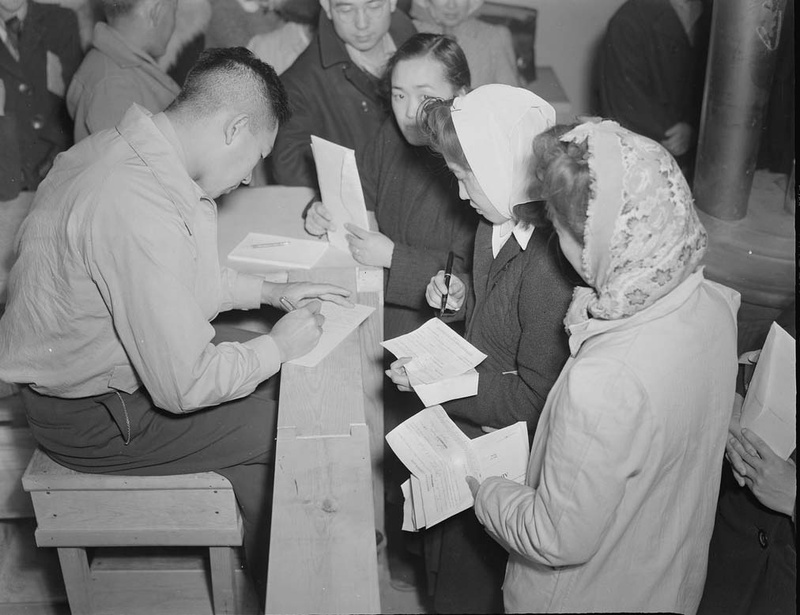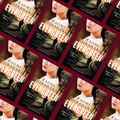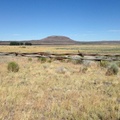These last several weeks after this year’s presidential election, I have grieved for my community, one that is made up largely of people from a variety of marginalized and minority communities. Friends who are Asian Americans, African Americans, Latinos/as, Native Americans. Friends who are gay and lesbian and bisexual and transgendered and queer, some of whom have been through attempts at “conversion therapy.” Friends who are Muslim, Jewish, Buddhist, Christian, atheist. Women who are survivors of domestic abuse, rape, sexual assault. Friends with physical and mental disabilities. Friends who live paycheck to paycheck, as well as friends who can travel frequently overseas. Friends who are immigrants or descended from immigrants. And progressive White allies who have felt their own degrees of dismay and anguish.
During these devastating weeks, I have moved through varying stages of grief for all of us.
Two things have kept me afloat: speaking to youth, and the presence of my Yonsei daughters. I’ll write more next month about these factors and two Nikkei related events in the Northwest. But first, the thoughts below felt more urgent:
For a long time, I have known that work in community-building, social justice, and Asian American studies was important. Now more than ever, I feel our work is compelling and crucial. We must each find the courage to speak our truths to our shared, contested American history. Supporting the continued work of community media outlets like Discover Nikkei and the International Examiner (my two “home” publications) is essential. If our stories felt alternative or under the radar in a “liberal” administration, how challenged will they be in a Trump administration? How much farther will we have to work towards truth, healing, and justice? Now more than ever, it will take a village.
In that spirit, I have compiled reactions to November’s election from the Seattle-area Nikkei community. They include Nisei, Sansei, and Yonsei; they include “part” Japanese and “full” Japanese and “full” Japanese American. They are professors and lawyers, booksellers and writers, theater producers and music therapists, filmmakers and community activists—reflecting, perhaps, my deep interests in storytelling, justice, and equity. I am grateful to Fife artist Mizu Sugimura, who suggested to me once that my work is about connecting communities.
Here we stand together again, and we resolve to take action to stand up for the most vulnerable in our society. A tapestry of Nikkei community voices felt like the best way to begin the long walk towards justice (again)—as all of us must.
Frank Abe, journalist and documentarian, Seattle
We as Japanese Americans realize we have a moral obligation to defend others targeted on the basis of race or religion, because we have been the targets before. That living memory of exclusion and incarceration brings with it a moral authority to speak when fear of a minority drives the nation down that road again. So we can be horrified at talk of a Muslim registry, and at the same time not surprised, because we’ve seen all this before.
Megumi Azekawa, music therapist, Tacoma
This election had a big effect on me, which I couldn’t have predicted.
One thing I’ve been feeling about this election relating to racism is that this election with Trump really highlighted the problems of obvious racism. However, I have also felt that it has brought out the problems of microaggression. Because some of those who think they are anti-racists don’t really know the subtlety of racism, so they speak up more in their “anti-racist” manners to perform their version of “woke” (aware and conscious of racist acts) but don’t know when they say something it may be a microaggression.
Microaggression is the type of racism I frequently experience (which many Nikkeijin may feel the same), so I feel more “othered” than before. I feel challenged to keep my integrity despite the reality.
Aya Hashiguchi Clark, theater producer, Tacoma
I am living with a serious medical condition that will probably take my life prematurely. I am aware of how short life is, and how important it is to make a positive impact during your life. The election of Donald Trump has energized me. I have no time for depression or fear. I am energized and committed to making my voice heard. If this administration talks about Internment camps, I will speak out. I will use my sphere of influence, (in my case, producing theatre,) to tell the truth and fight for what is right.
Karen Maeda Allman, bookseller, Elliott Bay Books, Seattle
Eric Liu has compared the days to come to the post-Reconstruction era, in which there was a tremendous backlash to gains in Civil Rights. We can’t stand by and let that happen. And this: let’s show a little love and forgiveness toward each other in the days to come. Including forgiving ourselves.
David Matsui, film gaffer, Seattle
It’s a weird place to be at the moment because I’ve never been fully able to embrace my Asian identity vs my American identity (my looks allow me to “pass”). So hearing about all these people who are fearing for their lives, afraid of what Americans believe they are entitled to now (such as racist slurs or the like), and watching so many people hurting puts me in a weird position of wanting to empathize but looking from the outside in. I think a big part of it was my grandparents’ families were on the camps while they served in the army. I think that after that, they worried/were ashamed of their heritage so it’s been played down in my family ever since.
I have always felt torn in my identity as Asian-American and hearing about how others suffer from prejudices I haven’t experienced, but now I feel more split as these unheard voices are rising in volume. However, I have hope that Trump is the desperate, last stand for the middle class, white, hetero male against equality.
One of the hardest parts of pointing out racism in the modern world to those unable yet to see, it is the concealed ways racism works. With Trump though, I think there has been a mindset shift in which those who practiced subtlety before believe their actions are now publicly approved because of his win.
Clarence Moriwaki, President, Bainbridge Island Japanese American Community (BIJAC)
My birthday was November 8th, and it was a wonderful day for me until 11 p.m. or so, when my birthday/election night watching party came to an abrupt halt. We sat in stunned silence when it became clear that Donald Trump would likely win the electoral college.
The following day, my two adopted Bainbridge Island moms—96 and 83 years old—treated me to a birthday lunch. Under a shared fog of grief and disbelief, we were trying to make sense of the election when in the middle of eating my udon soup and tempura vegetables, the younger mom announced that while she hated to admit it, she felt sadder after this election than after the death of her beloved husband just three months ago.
We talked it out and eventually realized that this election season with its bewildering bigotry, prejudice, hatred, and vulgarity unearthed her deeply buried feelings of fear, loss, and uncertainty that she felt 75 years ago, when she and my other adopted mom were forcibly removed from Bainbridge Island during WWII.
The next day the issue of how to respond to the growing reports of post-election hate crimes was placed on the agenda at our monthly board meeting of the Bainbridge Island Japanese American Exclusion Memorial Association.
With unanimous support, the board voted to make a strong statement of our opposition to hate crimes and a call for sanity and safety in the form of an Open Letter. I was tasked to write the letter, which was completed before noon on Veterans Day.
Pam Okano, lawyer, Seattle:
I was in Japan in November—we voted before we left. When we learned the election result, we were shocked and appalled. We spent the next 3 mornings waking up in a cold sweat wondering what this completely unqualified madman with an unfettered GOP Congress would do to our country and feeling absolutely helpless. Actually, we still wonder that, but the initial shock has been blunted a bit. We have a Muslim American friend (she’s a naturalized US citizen) who is going back to her country of birth partly because of all the anti-Muslim stuff He Who Shall Not Be Named has been saying.
I feel so sorry for President Obama, who has been thwarted at every attempt to do good things by the GOP-controlled Congress and who will now have to watch all his executive orders and possibly the ACA wiped out. I fear for people of color and ethnic/religious/gender/disabled minorities, I fear for public lands and the federal/state employees who steward them, I fear for our environment, I fear for our civil liberties, I fear for our economy, I fear for the Supreme Court, I fear for our education and health systems, I fear for the people who are less well off than I.
I even fear for the Republican Party, the party of Lincoln and Teddy Roosevelt, a party that I called my own for much of my life as a proud Dan Evans Republican. I’ve lived through President Kennedy’s, MLK’s, and Bobby Kennedy’s assassinations, the Cuban Missile Crisis, Watergate, civil riots due to racial issues, and the Vietnam War, and I’ve never been close to being as fearful as I am now and I HATE it.
Cho Shimizu, Nisei author, Puyallup
What a wake up call….Past Presidents have apologized and said what happened to me will never happen again. This election tells me we have a long way to go. Remember the pledge of allegiance with “liberty and justice for all?” I learned this in Camp.
Vince Schleitwiler, assistant professor, American Ethnic Studies, UW-Seattle
The election broke my heart, but it opened my eyes. Every time our elders told us never to forget, they were talking about right now. Every apology they won was just an empty promise unless we hold this country to it. And to anyone who voted for Trump but not for hate, now is your chance to prove it. Protect the vulnerable, and stand against violence. So now we stand with Muslims and the undocumented, with women targeted for harassment and assault, with protests against police violence, and with the people at Standing Rock, because we aren’t done fighting for our grandparents and for ourselves too.
Eileen Yamada Lamphere, Vice President of Puyallup Valley Chapter JACL, Kent
Even though this is scary and unknown territory, we must remain positive and do whatever we can to confront and stop our worst fears. No one can sit and do nothing but gripe about the situation. EVERYONE has the responsibility to do SOMETHING. Those of us in the JA community know all too well what happens when fear, ignorance, and a government run amok. There were some who supported us but not enough. We must be willing to confront those against any minority group, we must be willing to stand up against bullying, and we must organize and support anyone or group working on the next election. Hopefully, the debris field will be repairable.
We are beyond standing around licking our wounds or wandering around saying what’s next, unlike Chicken Little, the sky is not falling unless each individual decides to do nothing.
© 2016 Tamiko Nimura






